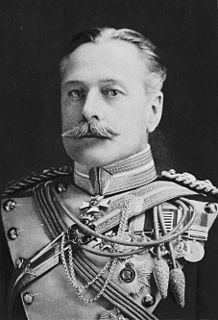A Quote by Carl von Clausewitz
Kind-hearted people might of course think there was some ingenious way to disarm or defeat an enemy without too much bloodshed, and might imagine this is the true goal of the art of war. Pleasant as it sounds; it is a fallacy that must be exposed: War is such a dangerous business that the mistakes which come from kindness are the very worst.
Related Quotes
When people ask the Dalai Lama, "Is Buddhism a religion?" he answers, "Yes, it is." Then they ask, "What kind of religion is it?" He responds, "My religion is kindness." You might think, "Everyone's is." Everyone's is. That's true. It's not complicated to describe the goal of a spiritual life. It's easier than you think to explain it. It's more difficult than you can imagine to do it.
You take this cold, remarkable, difficult, dangerous, borderline psychopath man, and you wonder what might have happened to him had he not met his best friend, a friend that no one would have put him with, this solid, dependable, brave, big-hearted war hero. I think people fall in love, not with Sherlock Holmes or Dr. Watson, but with their friendship. I think it is the most famous friendship in fiction, without a doubt.
American imperialism has suffered a stunning defeat in Indochina. But the same forces are engaged In another war against a much less resilient enemy, the American people. Here, the prospects for success are much greater. The battleground is ideological, not military. At stake are the lessons to be drawn from the American war in Indochina; the outcome will determine the course and character of new imperial ventures.
Throughout history civilian populations and political rulers have talked of peace. We have never been free of war. The soldier, whose profession is war, understands that peace must be enforced by superior military might. The certainty of defeat is the only effective deterrent we can use to maintain peace. Furthermore, we can be strong without being aggressive.
There's too much political hay to be made undercutting the war, and the consequences be damned. If they want to defeat the war to defeat Bush, well, noted. If they truly believe that the United States is in the same group as the Nazis, the Soviets and Pol Pot, then they've shown they have no perspective, no judgment, no sense of nuance, shall we say. And the idea that such comparisons might be picked up in the Middle East and broadcast with glee is irrelevant; they're parochial to a fault, and care little for anything beyond their reputation and power in Washington.
Libertarians have always battled the age-old scourge of war. They understood that war brought death and destruction on a grand scale, disrupted family and economic life, and put more power in the hands of the ruling class - which might explain why the rulers did not always share the popular sentiment for peace. Free men and women, of course, have often had to defend their own societies against foreign threats; but throughout history, war has usually been the common enemy of peaceful, productive people on all sides of the conflict.
One of the reasons it's important for me to write about war is I really think that the concept of war, the specifics of war, the nature of war, the ethical ambiguities of war, are introduced too late to children. I think they can hear them, understand them, know about them, at a much younger age without being scared to death by the stories.
It was my view then, and still is, that you don't make war without knowing why. Knowledge of course, is always imperfect, but it seemed to me that when a nation goes to war it must have reasonable confidence in the justice and imperative of its cause. You can't fix your mistakes. Once people are dead, you can't make them undead.
I think the International Criminal Court could be a threat to American security interests, because the prosecutor of the court has enormous discretion in going after war crimes. And the way the Statute of Rome is written, responsibility for war crimes can be taken all the way up the chain of command. This is the sort of investigation that some people who live in Fairyland might like to undertake, but which bears no relationship at all to conditions in the real world.
The essential act of war is destruction, not necessarily of human lives, but of the products of human labor. War is a way of shattering to pieces, or pouring into the stratosphere, or sinking in the depths of the sea, materials which might otherwise be used to make the masses too comfortable, and hence, in the long run, too intelligent.





































